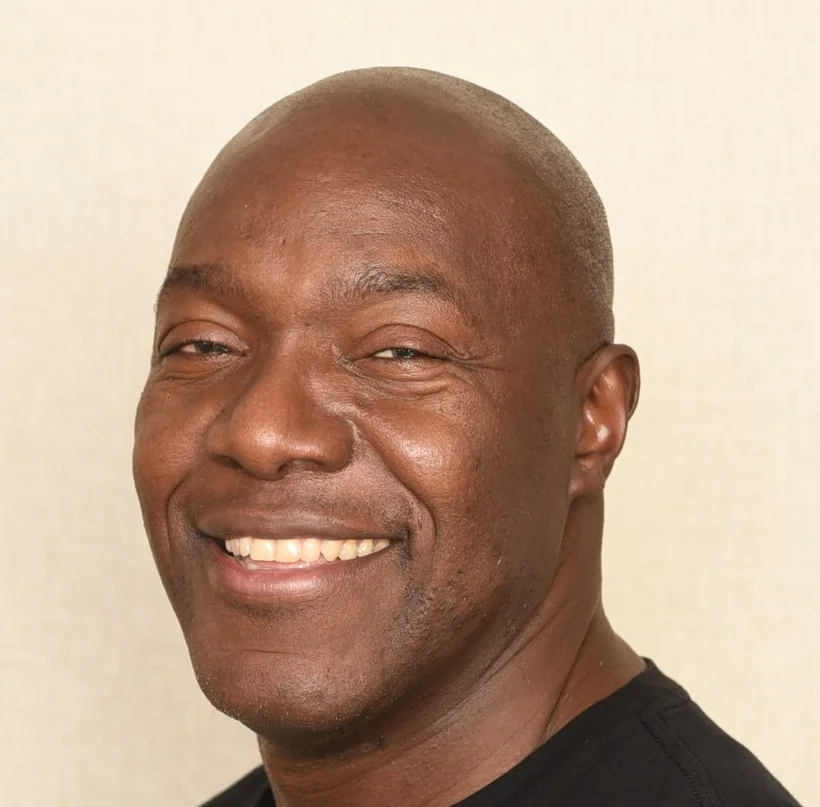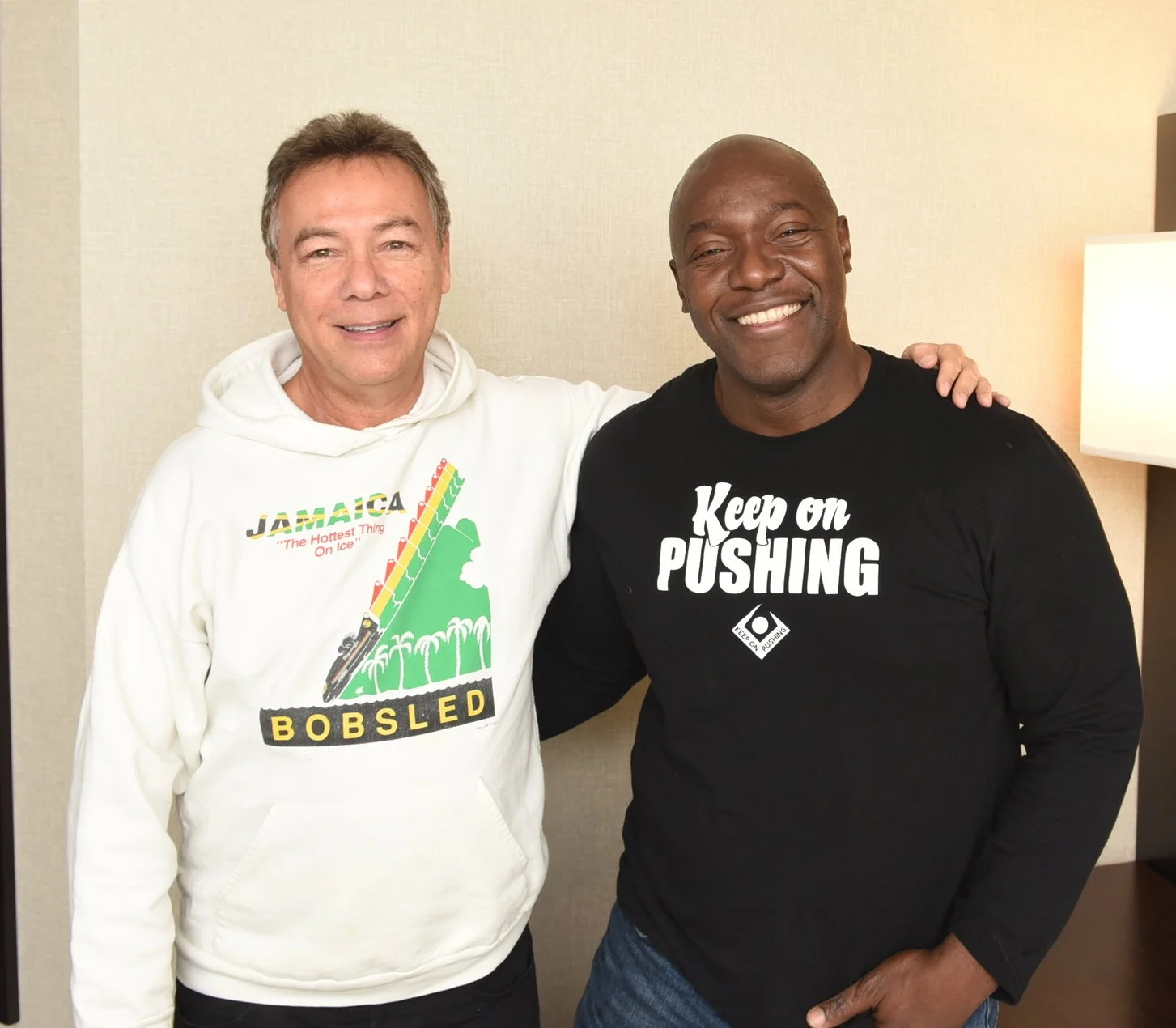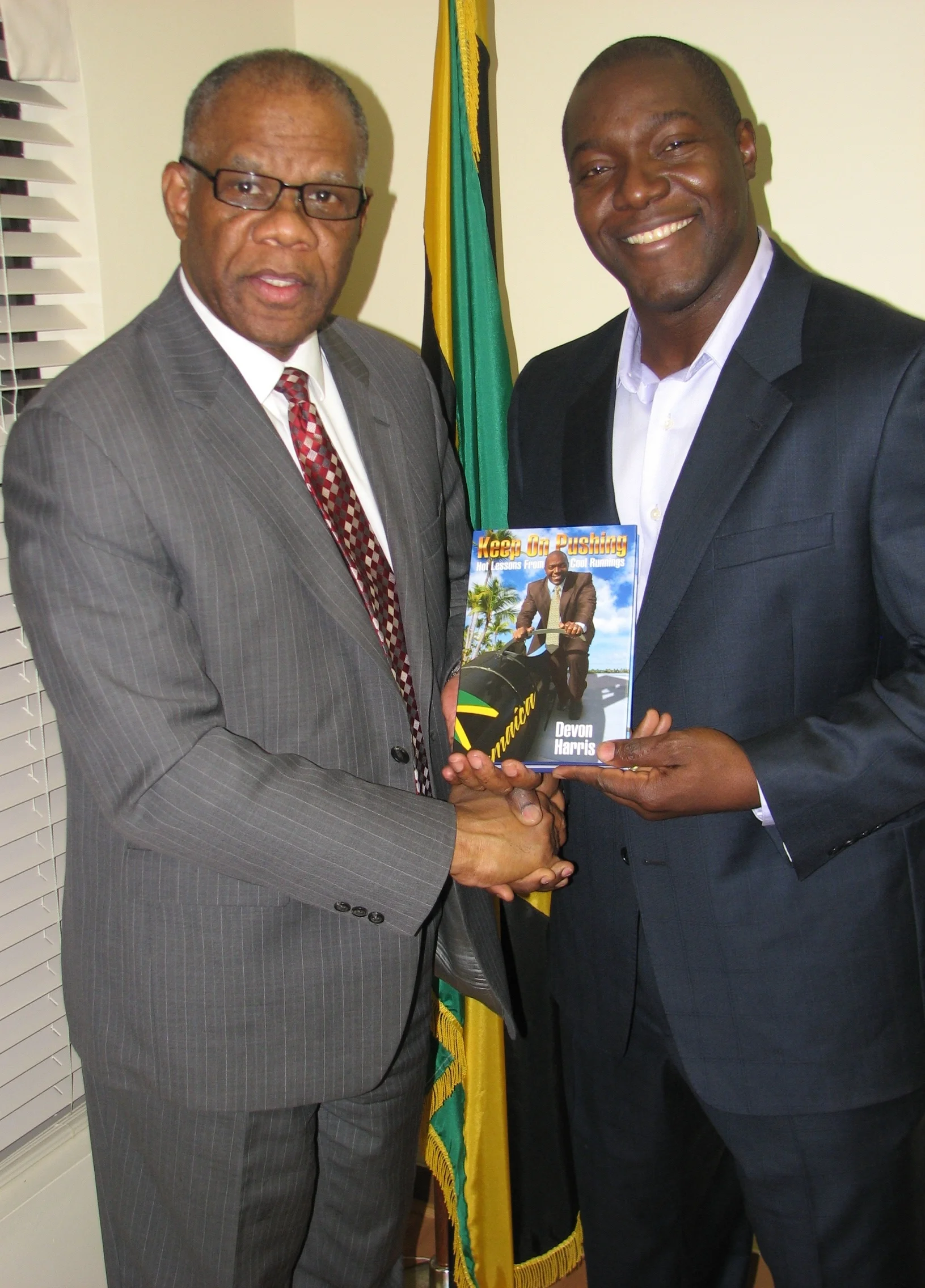From Olympic Gardens to the Olympics and much more
January 13, 2019
The words, ‘Talks a little bit too much in class’, often appeared on Devon Harris’ high school report card.
Little did the retired Jamaica Army officer know that his verbosity and Olympic experience would pay dividends.
As a highly sought-after motivational speaker, Harris travels the world inspiring public and private organizations, including Fortune 100 companies and individuals, about the power of passion, persistence and teamwork.
“I was a chatter box,” the Sandhurst-trained captain told me while in Toronto for a speaking engagement. “I just had a natural knack for speaking. In the Army, the young officers worked as a group on specific projects and it was the duty of the most senior officer to make the presentation. However, they often asked me to do it.”
In the summer of 1987 while reflecting on running barefoot at Ardenne High School and dreaming of representing Jamaica in track & field at the Olympics, an article in the Army weekly newsletter about Jamaicans interested in trying out in bobsledding for the upcoming Calgary Olympics captured Harris’ attention.
American businessmen George Fitch and William Maloney conceived the idea while socializing in a Kingston nightclub. They concluded that Jamaicans could be competitive in bobsled based on the talent and athleticism they saw in the local pushcart derby.
“I read the story over and over because I didn’t believe what I was reading,” the eldest of 15 children recalled. “It seemed ridiculous because snow doesn’t fall in Jamaica and bobsledding is a winter sport that’s fast and dangerous. I didn’t even know where Calgary was.”
Devon Harris (r) with former Jamaica Bobsled Federation marketer Peter Christopher (PC) Harris
Harris, however, jumped at the opportunity when his commanding officer – Colonel Alan Douglas – suggested he gave it a try.
A few months later, he was in Lake Placid preparing for the 1988 Winter Games. With limited preparation , the raw Jamaican team finished 30th in the 42-team two-man event and completed the four-man race despite a spectacular crash that occurred when driver Dudley Stokes lost control of the sled while attempting to negotiate a challenging turn on the track.
The neophytes weren’t listed to take part in the four-man event until Chris Stokes, who was at the University of Idaho on a track & field scholarship, showed up in Calgary during the second week of the Games to support his younger brother, Dudley, and the rest of the team.
“As we were all there, we decided to try the four-man race and see if we could win a medal for Jamaica,” recounted Harris. “We said, ‘Chris, you can sprint, so come with us’. That’s what transpired and it remains a mystery to me how he was accredited in the space of a few days and allowed to compete for us when he wasn’t part of the team in the first place. After three days teaching Chris what we knew, he was competing in the Olympics. Jamaicans are known for extraordinary things and that ranks right up there.”
Jamaica’s first bobsled team members Dudley Stokes (l), Devon Harris, Michael White and Samuel Clayton with co-founder George Fitch
Back in Jamaica filled with the euphoria of fulfilling a childhood dream of being an Olympian, Harris’ elated homecoming almost ended in tragedy.
American embassy guards shot at him and his platoon while they were patrolling New Kingston during Hurricane Gilbert in September 1988.
Shortly after returning from the 1992 Winter Games in Albertville, France, Harris was again caught in gunfire during the violence that erupted in Rema and Tivoli Gardens following the death of drug lord Lester Coke.
“I remember pausing to marvel at life in general,” he said. “One moment, I was at the Olympics proudly representing my country and here I was now being a shooting target in my own country. What a life.”
In January 1993, Harris and his family migrated to the United States.
His first job was a line cook in a Jamaican fast food restaurant in the Bronx.
“There are some retired Army captains and Olympians who would frown at that kind of work,” he said. “That’s not me. I never looked at it as a step down. It was a stepping stone. As an immigrant trying to find my way, I was prepared to do whatever it took by honest means to put food on the table for my family. It was a humbling experience, but one that built character. My worst days were Sundays when I was the only one in the kitchen for the day. I was left with my thoughts as I cooked, served and washed dishes. What set me apart from the other restaurant employees was that they weren’t seeing anywhere beyond that kitchen. I was looking way beyond that. There were a few of them who didn’t like the idea that I wasn’t willing to settle into the groove of working long-term in a kitchen. That didn’t bother me.”
After 18 months at the restaurant, another 18 months working in the receiving department at a Macy’s store and nine months at a retail outlet in the World Trade Centre, Harris returned to bobsledding.
“The pull was so strong that I just dropped everything I was doing and threw caution to the wind,” he said.
Two years before the 1998 Nagano Games, Harris met Mykie Silk, the cousin of late Jamaican reggae artist Garnet Silk.
“Mykie was the one that told me about motivational speaking which was something I had never heard of before,” he said. “He talked a really good game and wanted to manage me. That sounded fascinating, as I had never had a manager before. When he told me about the money I could make, I became even more interested and told him I would consider it after the Olympics. My one request was that he help me get to the Games.
Though Silk didn’t hold up his end of the deal, he planted a seed in Harris’ mind.
In November 1997 while in his hotel room in Park City, Utah, his agent at the time – Paul Bruno – brought a VHS tape.
“The speaker was Vince Poscente (a five-time Canadian speed skating record holder and motivational speaker) and Paul asked me if I could do that,” said Harris. “My response was ‘yes, I could do it’.
He bought a book, ‘How to Make a Fortune from Public Speaking: Put Your Money Where Your Mouth Is’, from a Calgary supermarket and did free talks at schools and rotary clubs after his last Olympic Games two decades ago.
Now, Harris travels the world earning top dollar making presentations that focus on the importance of having a dream, persistence in overcoming adversity, embracing change and not allowing others to define the limits of your success.
He delivers programs that are comprehensively customized, inspirational and vividly descriptive, drawing strong analogies to his experiences growing up in a violent ghetto environment and achieving the status of a three-time Olympic athlete and member of the first Jamaican bobsled team.
“I thoroughly enjoy what I am doing because I get to meet people from various cultures and share not only my story, but hope,” the married father of five children pointed out. “I connect with them on a very human level. The focus is never Devon Harris, the Olympian. It’s Devon Harris, the kid from Olympic Gardens who made it to the Olympics. My goal is to inspire people to keep on pushing until they get to their destination.”
Though travelling an average of four times monthly around the world, Harris still finds time to guide the ‘Keep On Pushing Foundation’ he founded 13 years ago to support and enhance the education of kids in disadvantaged communities around the globe by providing practical solutions to the challenges that are preventing them from getting educated.
The foundation supports a breakfast program at his former elementary school.
“That has gone very well and we are in the early stages of developing a digital academy to provide digital and technical training,” said Harris. “The focus is on kids who, like me, were raised in disadvantaged communities and giving them the training and skills to operate effectively in the new world. My hope is that this initiative will grow and play a significant role in transforming Jamaica into a digital and technological hub.”
Through the foundation, he also works with ‘Right to Play’ as an athlete ambassador, supporting the organization’s efforts in using sport and play in refugee camps around the world to enhance child development and build community capacity.
Harris has authored two books.
Devon Harris presents a copy of ‘Keep on Pushing: Hot Lessons from Cool Runnings’ to former Jamaica consul general to Toronto George Ramocan
‘Keep on Pushing: Hot Lessons from Cool Runnings’ takes readers on a journey from his upbringing in the tough Olympic Garden neighbourhood to the Olympic Games and his life in a new country that sees him travelling the world motivating people.
His first book, ‘Yes, I Can’, tells the story of the original bobsled team overcoming overwhelming odds and displaying courage to pursue their dreams and win the hearts of the world. Their remarkable story was captured in the film, ‘Cool Runnings’, an uproarious comedy about the embryonic bobsledders.









